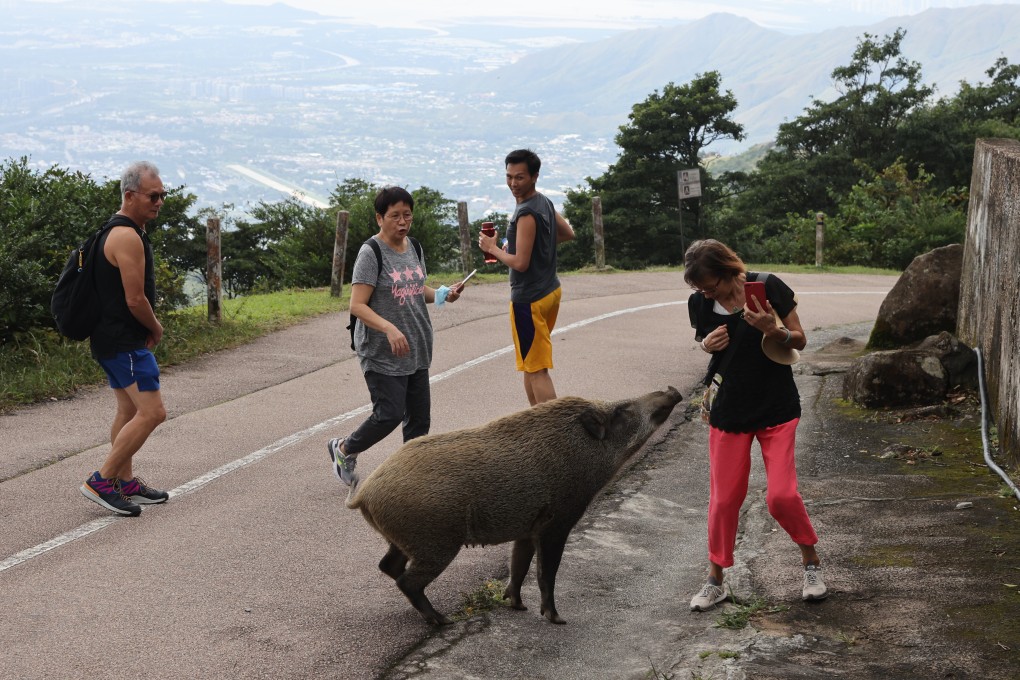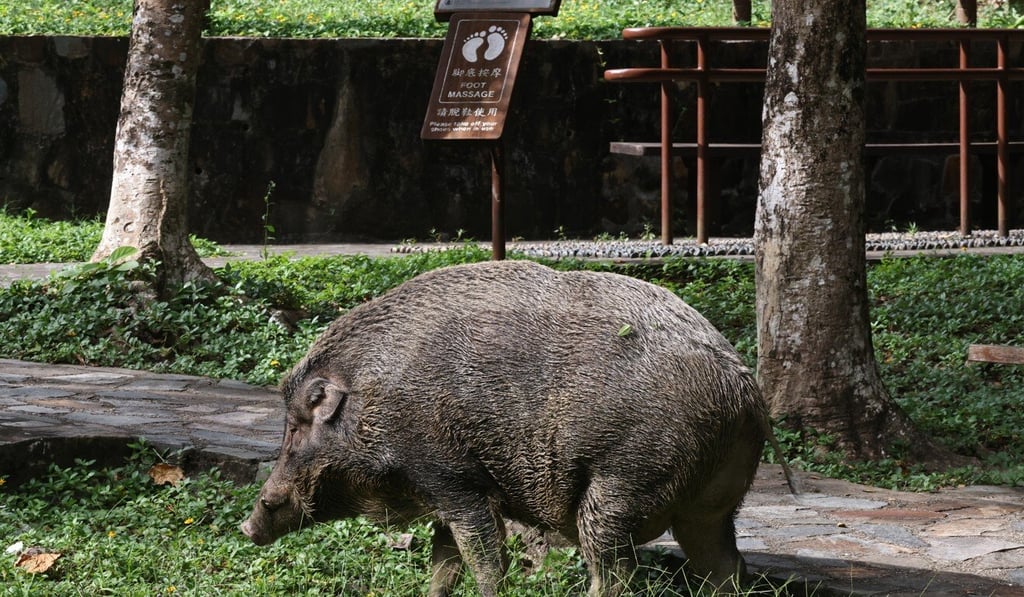Editorial | Culling Hong Kong’s wild boars not the way to go
- People who give the animals food are often to blame for their aggressive behaviour and an extension of feeding bans would be more effective

The growing number of injuries and reports of nuisance caused by wild boars in urban areas are understandably a matter of concern. Even Chief Executive Carrie Lam Cheng Yuet-ngor weighed in on Tuesday, defending the latest government response – to capture and kill the animals in such areas regularly.
But whether this is the solution is open to debate. The problem, experts say, is essentially caused by more people feeding wildlife and a change in the habitat and behaviour of boars.
It therefore makes better sense to first step up public education and tighten the relevant law on feeding.
The latest mishap involved an auxiliary police officer who was attacked by a wild boar in the residential area of Tin Hau a week ago. The Agriculture, Fisheries and Conservation Department later announced that such animals in urban areas would be captured and culled regularly, as opposed to the previous “capture, neuter and relocate” approach.

The U-turn has upset animal rights groups and those who believe there should be a crackdown on feeding instead.

